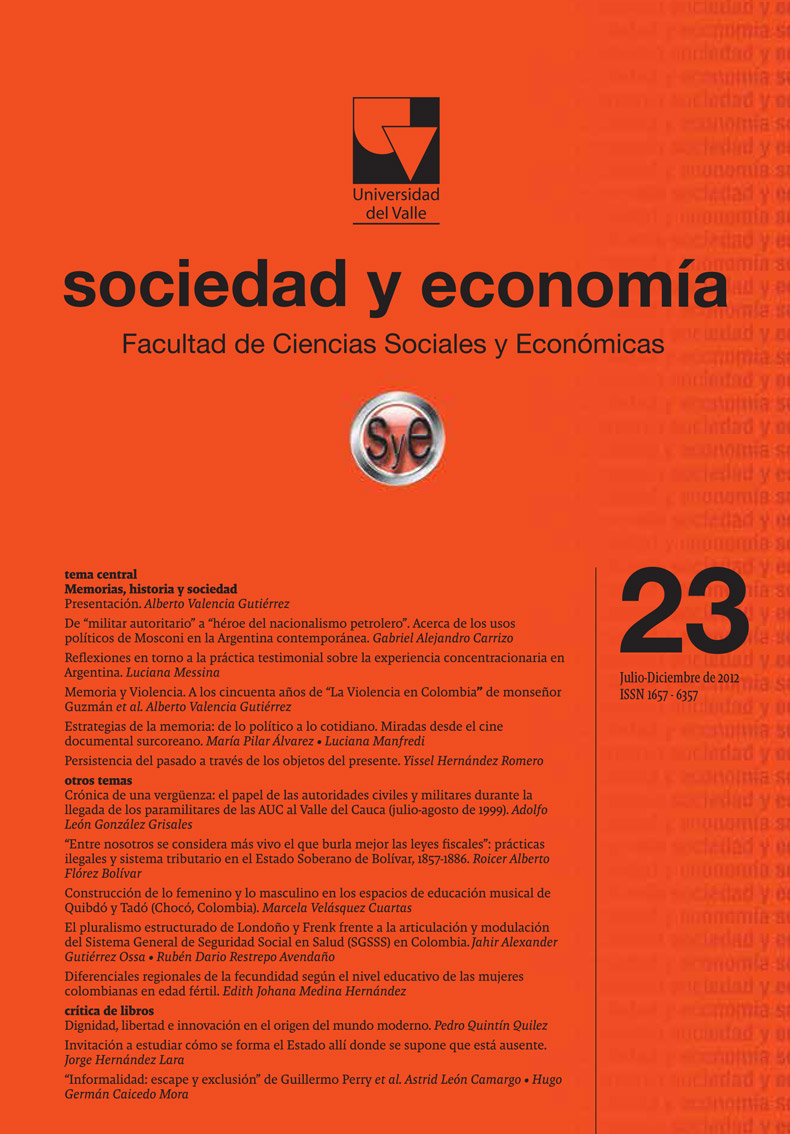Construction of the Feminine and the Masculine in Music Education Contexts in Quibdó and Tadó (Chocó, Colombia)
Published:
2012-07-15
Keywords:
Music, Gender, Music Education, Music from Choco.Main Article Content
Musical practices make part of a set of imaginaries about a community’s social and cultural knowledge. In Quibdo and Tado, municipalities of the department of Choco, Colombia, their inhabitants recognize and exalt the processes that strengthen such practices and their transmission by means of the music education offered by qualified teachers at both regular schools and informal music centers. However, such musical processes are framed by assumptions on what should be either feminine or masculine, which takes us to the question about how, from an exercise of musical and cultural strengthening, masculine and feminine identities are instructed or reinforced, influencing the process of appropriation of sociocultural behaviors in regards to music itself and to technical elements such as instrument choice, music repertoires and even the classes to take, generating conflicts of a symbolic order about the places of cultural and musical participation of boys, girls and youngsters in these municipalities.
1.
Velásquez Cuartas M. Construction of the Feminine and the Masculine in Music Education Contexts in Quibdó and Tadó (Chocó, Colombia). soc.eco [Internet]. 2012 Jul. 15 [cited 2026 Feb. 12];(23):167-82. Available from: https://sociedadyeconomia.univalle.edu.co/index.php/sociedad_y_economia/article/view/3989
Downloads
Download data is not yet available.

This work is licensed under a Creative Commons Attribution-NonCommercial 4.0 International License.
Revista sociedad y economía editada por la Facultad de Ciencias Sociales y Económicas de la Universidad del Valle se encuentra bajo una Licencia Internacional Creative Commons Atribución - No comercial 4.0
Basada en una obra en http://sociedadyeconomia.univalle.edu.co

